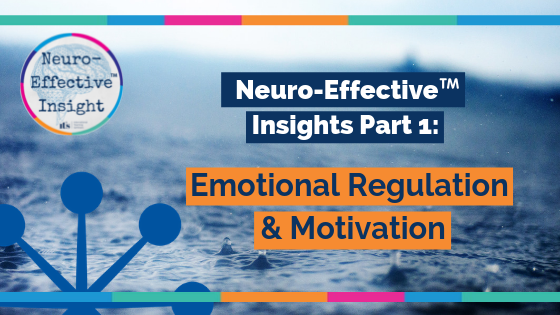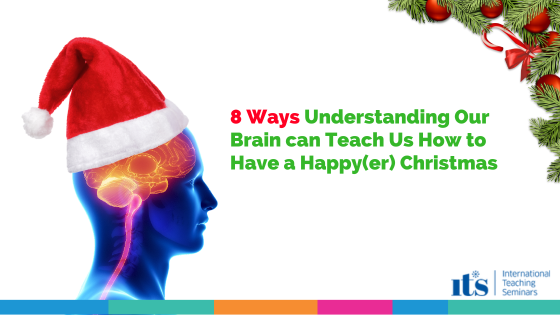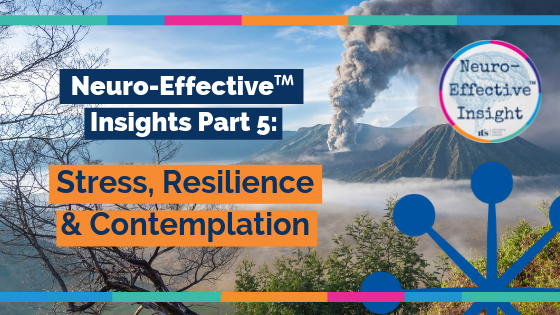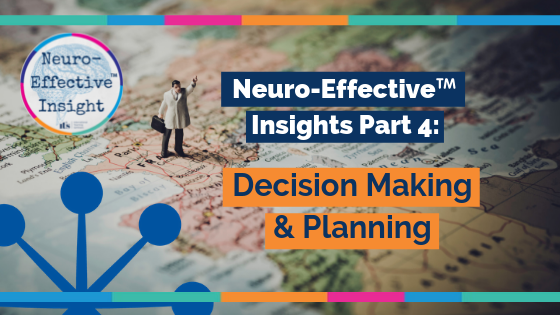So you’ve read Being Neuro-Effective™: the 5 key areas where neuroscience can give you the edge. And now you’re curious to find out more…
Where does emotion come from in an evolutionary perspective?
If we think about the kind of questions one might ask, certainly from a neuroscience perspective, then this question would be a good starting point – and somewhat profound when you really think about it. By understanding the purpose and function of your emotions, you can begin to steer them and put them to good use – for yourself, and others.
It is also the type of learning you would find in our upcoming ‘Brain & Behavioural Change Programme‘.
What is emotional regulation and how does it affect motivation?
Understanding your own emotional response is a key to being more self-aware, but also being able to help others understand their own emotional responses too. By knowing where your emotions are coming from, you can then be at choice. Is that an emotional response I want or not? Being able to provide some information about how the brain controls your emotional responses begins to add more choice.
We end up with emotion driving motivation. This is significant because who wouldn’t want to be able to be motivated when they need to be? You need emotion to do that. The same applies when you ask how does an individual, a team or an organisation successfully manifest motivation that takes you through to accomplishment?
Neuro-Effective™ Insights
Neuro-Effective™ Insight #1: Empathy for Self
Have you noticed how you’re harder on yourself than you are on other people? Why, even if you are a great people person who is sensitive to the emotions of others, can you still be your own worst critic? Our brains naturally prevent us from being more empathetic to ourselves. You can develop techniques to help become a more critical friend. Understanding how the brain works in this situation means you can engage less destructively with yourself, and have more choices.
Neuro-Effective™ Insight #2: Calibrating Emotions
Most of us know people who over-react to situations and others who seem unflappable. There is a difference in the brain activity of those who over- and under-react emotionally. How can we use this understanding to put ourselves and others at more choice in our emotional reactions? Just recognising the different degrees of emotional response is a very important step in itself.
Neuro-Effective™ Insight #3: Exploitation and Exploration
Do you ever think perhaps I should be doing something else and exploring beyond the familiar? How do you switch between using what you have and trying something new, and knowing the time is right? The brain has a system in place that supports this. We live in times of increasingly rapid change when it is important to develop and implement new ideas quickly. How can we use our brains better to improve our ability to incorporate the new while not losing what is already working?
There is a whole world to explore here which offers us a whole new way of thinking – and a unique power to transform.
With that comes more choice and more ability to make a difference in a way that matters to you. To read more, take a look at the other parts of this Neuro-Effective™ Insights series:
Being Neuro-Effective™: the 5 key areas where neuroscience can give you the edge
Neuro-Effective™ Insights Part 2: Creativity & Insight
Neuro-Effective™ Insights Part 3: Learning & Memory
Neuro-Effective™ Insights Part 4: Decision Making & Planning
Neuro-Effective™ Insights Part 5: Stress, Resilience & Contemplation
To immerse yourself in this way of thinking and learning, then join us on our upcoming Brain & Behavioural Change Programme that we co-created.
This article is co-authored by Ian McDermott and Professor Patricia Riddell





Leave A Comment